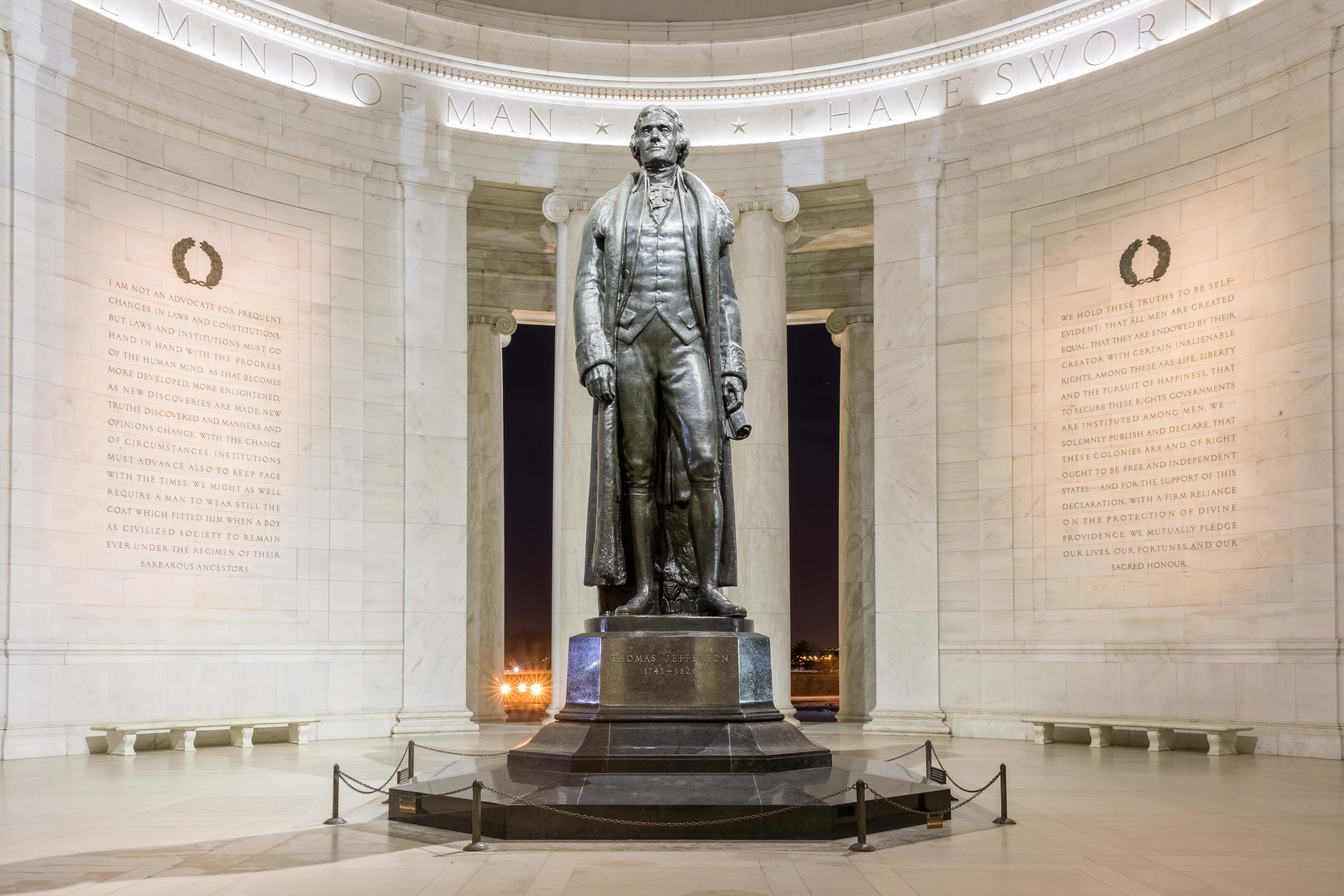
Ask the questions that have no answers.
Invest in the millennium. Plant sequoias.[1]
In an election year dominated by slogans, one soared above the rest: “Make America Great Again”.
Even on the face of it, It’s a loaded phrase. It invites a variety of questions: Is America not currently great? Was it truly great in the past? What are the secrets that would make America great. . . again?
The slogan could—and probably does—imply many different things. At the root of all possible meanings, however, is the premise that making the nation greater than it’s ever been—and making any country greater than it’s ever been—lies in returning to our roots.
Millions of Americans today reportedly believe their jobs have been taken by people willing to work for less, or by individuals producing products overseas that current Americans or their parents once produced in the land of the free. Many citizens celebrated—but some were suspicious--of a reported deal reached recently to keep 1000 Carrier Corporation jobs in the state of Indiana.
We feel the threat on many fronts. Untiring robots quietly replace 16 human jobs per robot in a packing plant; agri-business strips the need for human pickers in the field. Artificial Intelligence eliminates the roles that call for human judgment. Most vulnerable are transportation jobs, but retail and fast food workers are being replaced by impersonal technology that never asks for a raise or ever needs health insurance.

So why did a large majority of American Millennials not resonate with the issues about which the other half of the country voted on Election Day? Truth is, relatively few Millennials have any significant interaction with agriculture, manufacturing, or other “working class” issues. Many Millennials are college-educated (but not as many as some think).[2] Most work in urban areas, and sip their $5.25 Pumpkin Spice Lattes while simultaneously ruminating on their mountains of college debt, taking a selfie, and hash-tagging #firstworldproblems.
Do today’s Millennials still believe in the much-storied “American dream”? Why should they, when the golden promise of their generation—that technology will lead us to a new Promised Land—hasn’t resulted in increasing prosperity? They sit uncomfortably in Starbucks, far from the land that grew the wheat that made their frosted scones possible, wondering how the world’s wealthiest nation can be growing more food than ever while more American kids go hungry. Disparities and contradictions loom on every side—between rich and poor, “red” and “blue”, rural and urban—in what TIME magazine this week adroitly termed “the Divided States of America.”
To get some background, you first need “ground”—in this case, the soil that nurtures real roots.
Let me explain. My understanding of Bible prophecy teaches me to believe that America was designed by God for a role it would play in the history of nations—and not just through geo-politics.
Did you know, for example, that America has more farmland with easy access to river transport than any nation of the world?
Did you know, for example, that America has more farmland with easy access to river transport than any nation of the world? Or that it’s drastically cheaper to transport both farm products and manufactured products by boat than by rail or truck? I believe that Providence intended America to be an economic powerhouse, and, in turn the breadbasket of the world. But the only way to make that design work is—agriculture.
We dare not ignore the history that reminds us that the rich farmland of present-day America was largely confiscated from its original inhabitants—and massively deforested through the back-breaking labor of generations who wrestled a living from the land. But we can fairly conclude that what America has now become resulted from the unique confluence of geography, liberty, faith—and the tilling of the soil.
In the very nation where prophecy predicted that the Bread of Life would be sustained, the bread that nourishes hungry appetites would be the economic engine of this safe-haven, a sanctuary for men and women seeking God according to the dictates of their own consciences.
Was God perhaps opening a way in the founding of this nation for religious and political refugees escaping the cities and hierarchical controls of the Old World to return to the way of life He originally planned? Scripture tells us that humans were created to live in a garden, to “tend and keep it” (Gen 2:15). Have we outgrown that paradisiacal plan?
Like me, most Millennials have been educated by a system that often inculcated the idea that manual labor—agriculture or manufacturing work—is something for the economically disadvantaged or the under-educated. We recoil—at least slightly—from the idea that men and women with our advantages and education might ever spend our work lives picking cabbage, pruning orchards or running dairy herds. Even on a recent trip to India, I heard the same sentiments being shared by their rising Millennial working class.

Aside from the implicit arrogance of these notions, there’s a bigger issue behind the fact that most Americans under the age of 40 have relatively little contact with the land—specifically, the farmland—that made this nation great.
Two hundred thirty years ago, the man who would become the third president of the United States, and who authored its Declaration of Independence, addressed the question of America’s unique identity among the nations of the world. As he watched the Industrial Revolution begin to change both the landscape and the population of a nation he dearly loved, he asked if Americans were, in fact, intended by Providence for a special relationship with the soil. Should Americans be growing raw materials, or should we be manufacturing products?
History reminds us that Jefferson is, in large measure, a flawed apostle for the values he advances. While he penned the words cited below, his own connection with the land might best be termed “vicarious”: his Monticello estate was actually worked by more than 200 African-American slaves—men, women and children who hoed the corn and grew the fruit that ended on his table. He might have better grasped the very truths of which he wrote if he had found himself with an axe in hand or a garden to rake.

That said, his lines are still worth pondering, though not easy to follow for 21st century Americans. Allow me the liberty to interpolate comment throughout. Jefferson’s words are in italics: mine are in bold.
Jefferson wrote:
The political economists of Europe have established it as a principle that every state should endeavor to manufacture for itself: and this principle, like many others, we transfer to America, without calculating the difference of circumstance which should often produce a difference of result. . . In Europe the lands are either cultivated, or locked up against the cultivator. Manufacture must therefore be resorted to of necessity not of choice, to support the surplus of their people.[3]
In Europe they have to make “stuff” (manufacture goods) because there are so many people, and limited permission to work the constantly diminishing farmland.
But we have an immensity of land courting the industry of the husbandman (farmer). Those who labour in the earth are the chosen people of God, if ever he had a chosen people, whose breasts he has made his peculiar deposit for substantial and genuine virtue. It is the focus in which he keeps alive that sacred fire, which otherwise might escape from the face of the earth.
That’s his thesis right there—that those who grow things are knit closely with the Divine.
Corruption of morals in the mass of cultivators is a phenomenon of which no age nor nation has furnished an example. It is the mark set on those, who not looking up to heaven, to their own soil and industry, as does the husbandman, for their subsistence, depend for it on the casualties and caprice of customers.
“Show me a nation in history,” Jefferson challenges us, “whose morals degraded because they spent too much time in the garden. I don’t think it exists.”
Dependence begets subservience and venality, suffocates the germ of virtue, and prepares fit tools for the designs of ambition. This, the natural progress and consequence of the arts, has sometimes perhaps been retarded by accidental circumstances: but, generally speaking, the proportion which the aggregate of the other classes of citizens bears in any state to that of its husbandmen, is the proportion of its unsound to its healthy parts, and is a good-enough barometer whereby to measure its degree of corruption.

When populations are completely dependent on others for sustenance (food and housing) they inevitably injure both society and their own souls. In Jefferson’s view, a healthy society depends on those who live in closest contact with the land. Societies that ignore this truth will move inevitably toward corruption.
The mobs of great cities add just so much to the support of pure government, as sores do to the strength of the human body. It is the manners and spirit of a people which preserve a republic in vigour. A degeneracy in these is a canker which soon eats to the heart of its laws and constitution.[1]
Against the centuries-old trend of urbanization and industrialization, Jefferson argues that freedom—and good government—are best preserved by those who have a living connection with the soil.
When AI (Artificial Intelligence) has replaced all drivers . . . When retail and fast food outlets no longer need humans to check you out as you purchase your J.Crew sweaters or sample Chipotle’s latest offerings . . . When factories are assembling products and housing with robots who never laugh or cry or think . . . If current trends continue, fewer jobs will be filled by humans. And what will be the result of avoiding sweat and toil and dirt?
“It is the manners and spirit of a people which preserve a republic in vigour!”
The secret of any successful nation, Jefferson argues, lies in its foundational commitment to manual labor, contact with the soil, and the independence that naturally results from these.
Jefferson’s haunting words have more than an echo in lines written by Ellen White, Adventist pioneer and visionary. Writing more than a century after Jefferson, she also describes the intimate connection between growing things and growing character:
Let the teacher call attention to what the Bible says about agriculture: that it was God's plan for man to till the earth; that the first man, the ruler of the whole world, was given a garden to cultivate; and that many of the world's greatest men, its real nobility, have been tillers of the soil.
many of the world's greatest men, its real nobility, have been tillers of the soil.
The wise man says, “The king himself is served by the field.” Ecclesiastes 5:9. Of him who cultivates the soil the Bible declares, “His God doth instruct him to discretion, and doth teach him.” Isaiah 28:26. And again, “Whoso keepeth the fig tree shall eat the fruit thereof.” Proverbs 27:18.
He who earns his livelihood by agriculture escapes many temptations and enjoys unnumbered privileges and blessings denied to those whose work lies in the great cities. And in these days of mammoth trusts and business competition, there are few who enjoy so real an independence and so great certainty of fair return for their labor as does the tiller of the soil. [4]
In her book The Ministry of Healing, she writes: In God's plan for Israel every family had a home on the land, with sufficient ground for tilling. Thus were provided both the means and the incentive for a useful, industrious, and self-supporting life. And no devising of men has ever improved upon that plan.
No devising of men has ever improved upon that plan
To the world's departure from it is owing, to a large degree, the poverty and wretchedness that exist today.
Ellen White’s vision extends beyond the boundaries of the Seventh-day Adventist movement she helped to found. She ponders the beneficial impact of these ideas upon societies that may not yet recognize the rule and providence of God:
Thus, also, our schools could aid effectively in the disposition of the unemployed masses. Thousands of helpless and starving beings, whose numbers are daily swelling the ranks of the criminal classes, might achieve self-support in a happy, healthy, independent life if they could be directed in skillful, diligent labor in the tilling of the soil. [5]
I get it: this is strong, counter-cultural stuff. It runs against the current of the times, and thus challenges some of the “sacred” norms of today’s Millennials. But it is a question both worth asking and knowing the answer to: Is the secret to making America and the character of its men and women great literally beneath us?
In the beginning, humans were given a garden to live in, work in, and in which to grow. Scripture tells us that at the end of one thousand years in heaven, we will return to this Earth—to again live in close connection with the soil: “They will build houses and dwell in them; they will plant vineyards and eat their fruit” (Isaiah 65:21, NIV).
Now that’s a millennium every thinking Millennial ought to be investing in.
[1] Wendell Berry, Manifesto: The Mad Farmer Liberation Front
[2] http://themillenniallegacy.com/the-millennial-generation/well-educated/#.WEGDmneZMcg; http://www.alternet.org/education/surprise-majority-millennials-dont-have-college-degree-thats-going-cost-everybody
[3]Thomas Jefferson, Notes on the State of Virginia (Richmond: J. W. Randolph, 1853). Originally written in 1781 and first published in 1784.
[4]Ellen G. White, Education, (Mountain View, CA: Pacific Press Publishing Association, 1952), 219
[5]Ibid, 219.